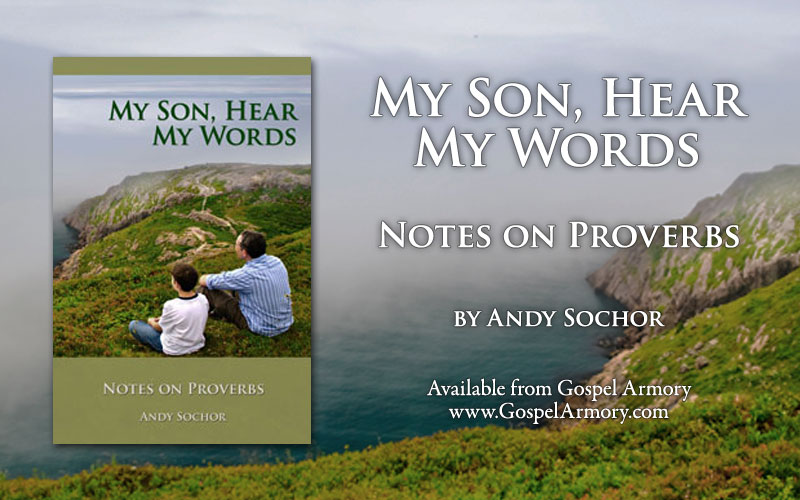
The following is an excerpt from the book, My Son, Hear My Words: Notes on Proverbs.
“Drink water from your own cistern and fresh water from your own well. Should your springs be dispersed abroad, streams of water in the streets? Let them be yours alone and not for strangers with you. Let your fountain be blessed, and rejoice in the wife of your youth. As a loving hind and a gracious doe, let her breasts satisfy you at all times; be exhilarated always with her love. For why should you, my son, be exhilarated with an adulteress and embrace the bosom of a foreigner?” (5:15-20). God designed marriage as the relationship in which a man and a woman can fulfill their sexual desires (Genesis 2:24; Hebrews 13:4). Solomon’s advice to his son in these verses is that he should be content with his wife in regard to their sexual relationship (5:15). He was not to seek out the adulteress (5:20); we have already noticed warnings about her in other passages (5:1-14; 6:24-35; 7:1-27; 9:13-18). He warns his son not to let his “springs be dispersed abroad” (5:16), dividing his attention, support, care, and affections between his wife (to whom they should exclusively be directed) and others. He says, “Let your fountain be blessed” (5:18). A fountain refers to a source. In this context, it is the source of his life, which is his heart (cf. 4:23). His heart and his life will be blessed as he rejoices “in the wife of [his] youth” (5:18). He is to enjoy their sexual relationship and “be exhilarated always with her love” (5:19). Pursuing sexual desires outside of marriage only leads to trouble. Fulfilling sexual desires within marriage, as God intended, is a great blessing.
You can read more comments on the book of Proverbs in My Son, Hear My Words: Notes on Proverbs. Follow the link to learn more about the book and purchase your copy today!